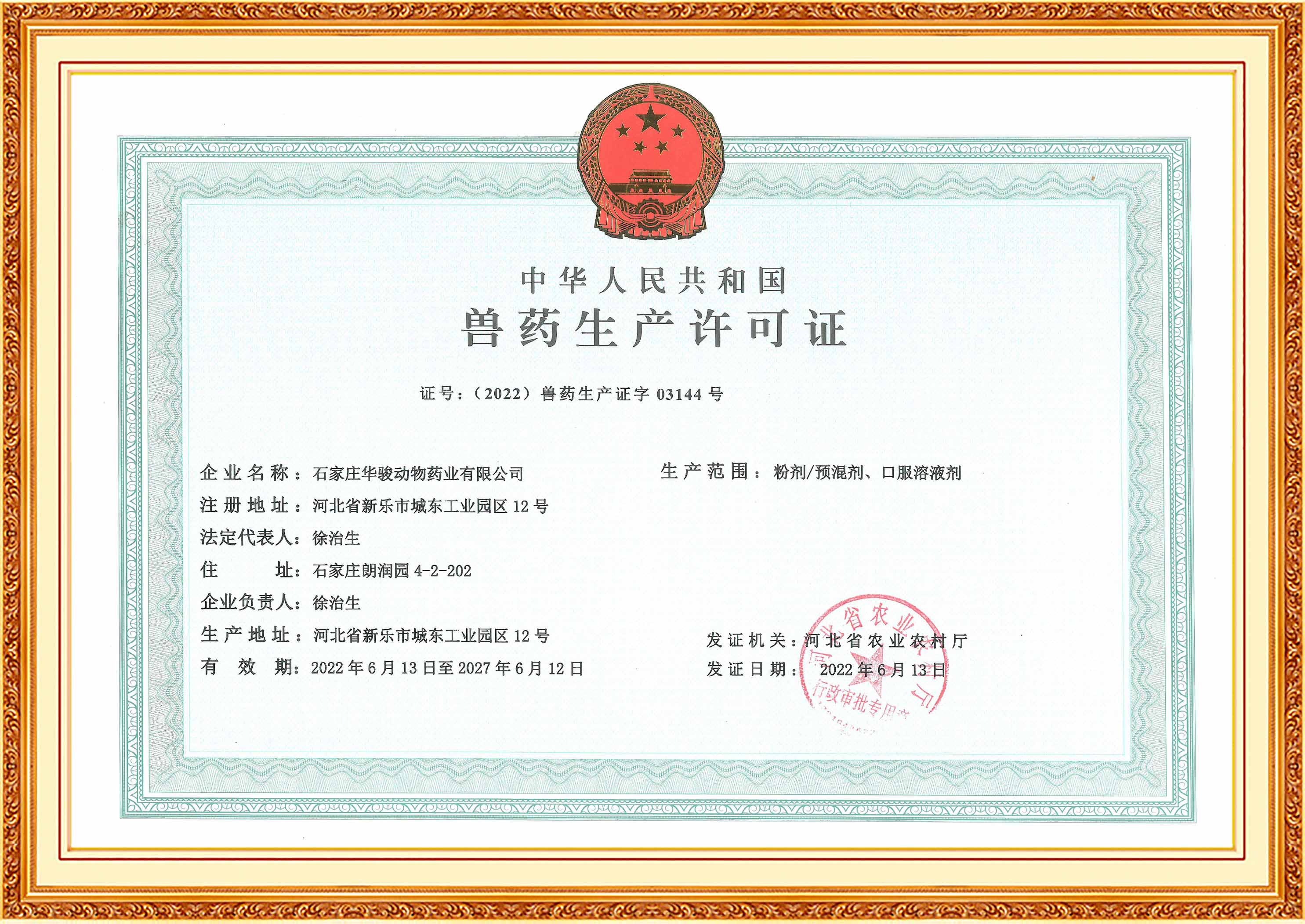
Oct . 22, 2024 05:07 Back to list
Understanding Psittacosis and Its Impact on Human Health and Avian Species
Understanding Psittacosis A Guide to this Avian Disease
Psittacosis, also known as parrot fever, is an infectious disease caused by the bacterium *Chlamydia psittaci*. Primarily affecting birds, especially parrots, the disease can also be transmitted to humans, leading to a range of health concerns. This article explores the nature of psittacosis, its symptoms, transmission, prevention, and treatment, enhancing our understanding of this zoonotic disease.
Overview of Psittacosis
The term psittacosis is derived from the Greek word “psittakus,” meaning parrot. The disease was first identified in the early 20th century during outbreaks linked to pet birds. *Chlamydia psittaci* is a gram-negative bacterium that can thrive in various avian species, but it is most commonly associated with parrots, cockatiels, and other exotic birds. Infected birds often show no symptoms, making regular veterinary check-ups essential for pet owners.
Symptoms in Birds
In birds, psittacosis can manifest as both acute and chronic illnesses. Common symptoms include
- Respiratory distress, such as coughing or nasal discharge - Swollen eyes and conjunctivitis - Lethargy and decreased appetite - Diarrhea - Feather plucking and other behavioral changes
If the disease progresses, it can lead to severe respiratory signs, liver and spleen enlargement, and, ultimately, death. Early detection and treatment are critical to managing the disease in avian companions.
Transmission to Humans
Psittacosis is categorized as a zoonotic disease, which means it can jump from animals to humans. Transmission typically occurs through inhalation of dried secretions from infected birds or direct contact with an infected bird. Pet owners, veterinarians, and bird handlers are particularly at risk during handling or cleaning of bird cages.
In humans, symptoms can vary from mild to severe and may include
psittacosis

- Fever, chills, and headache - Muscle aches - Cough and respiratory distress - Nausea and vomiting - Rash
The incubation period for human infections usually ranges from 5 to 14 days. In severe cases, particularly among individuals with weakened immune systems, the disease can lead to pneumonia and result in hospitalization.
Prevention and Control
Preventing psittacosis revolves around proper bird care and hygiene practices. Bird owners should ensure their pets receive regular veterinary examinations and vaccinations when recommended. Proper cleaning of cages and surrounding areas, alongside the use of protective equipment such as masks and gloves when handling sick birds, is vital.
For bird retailers and breeders, implementing strict hygiene practices and screening birds for psittacosis before sale can help mitigate the spread of the disease. Public awareness campaigns are essential for educating bird owners and enthusiasts about the risks and signs of psittacosis.
Treatment Options
Treatment for psittacosis in birds typically involves antibiotic therapy, with doxycycline being a commonly prescribed medication. The duration of treatment can vary based on the severity of the infection and the bird's overall health.
For humans, psittacosis is treatable with antibiotics, including doxycycline or tetracycline. Early diagnosis and treatment can lead to a complete recovery, although some patients may experience lingering symptoms.
Conclusion
Psittacosis is a serious disease that poses risks to both avian and human health. By understanding its symptoms, transmission, prevention, and treatment, bird owners and handlers can take proactive steps to protect themselves and their feathered friends. Regular veterinary care, maintaining cleanliness, and being vigilant about the health of pet birds are essential in managing the risks associated with this zoonotic disease. Ultimately, education and awareness are the key to preventing psittacosis and ensuring the well-being of both birds and their human companions.
-
Quality Bacillus Coagulans BC30 Factory - Expert Production
NewsAug.02,2025
-
China Salivation AI with GPT-4 Turbo Features
NewsAug.01,2025
-
Epic Sepsis Factories: AI-Driven Detection with GPT-4 Turbo
NewsJul.31,2025
-
Acute Salpingitis and Oophoritis AI Factory
NewsJul.31,2025
-
Premium China Bacillus Subtilis Supplier & Factory Solutions
NewsJul.30,2025
-
Premium Avermectin Supplier in China | Custom Solutions Available
NewsJul.29,2025




